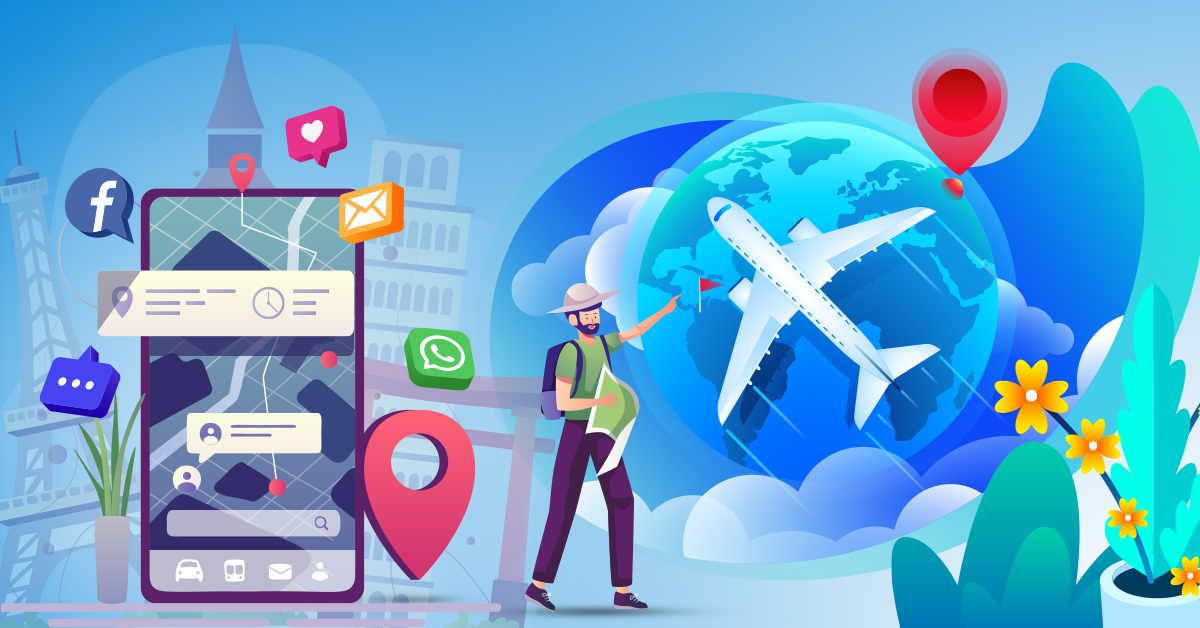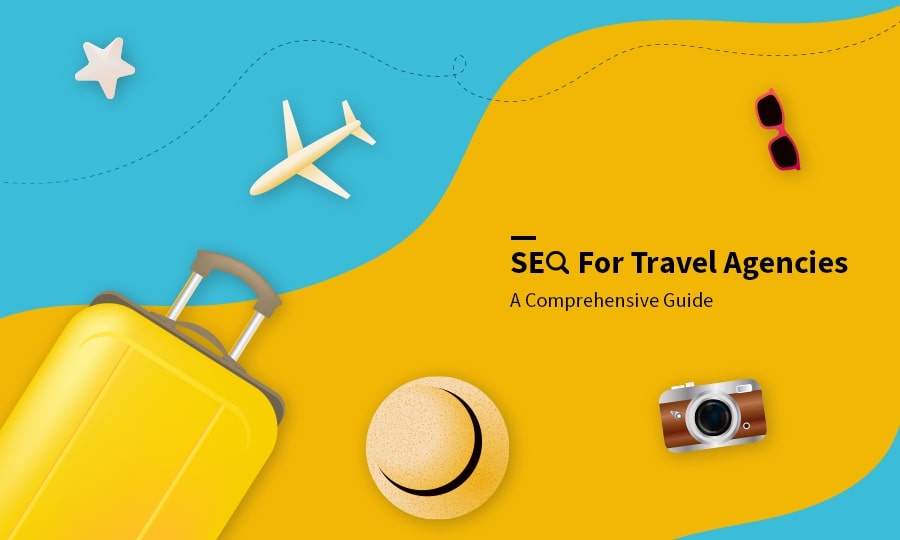
Digital Marketing Impact on Travel Trends
Travel and tourism have seen massive transformations in the past few decades. From brochures to digital marketing, travellers now rely on different methods for planning their trips. Traditional travel agents and traditional ways of finding travel ideas have slowly faded into oblivion, and the current generation looks to digital marketing to shape its trends. The ways through which people choose destinations, make accommodations, and even choose activities are now shaped by digital marketing.
In this blog, we’ll explore how digital marketing has influenced the travel industry, reshaping consumer behaviour, travel preferences, and the way travel companies engage with their audience.
The Role of Digital Marketing in the Travel Industry
The methods of digital marketing include, among many others, social media marketing, search engine optimisation (SEO), email marketing, content marketing, and online ads. For travel companies, the tools have become a requirement in reaching potential customers, increasing brand awareness, and inducing booking.
Travellers had to depend on travel agencies or word of mouth to discover destinations and book trips before the digital age. But nowadays, thanks to the internet and social media, one can find endless amounts of information and inspiration instantly at his fingertips. A simple Google search or an Instagram hashtag can lead a person to an exciting destination he had never considered before.
1. Social Media Shapes Travel Choices
The most direct impact of digital marketing on travel trends is through social media platforms, such as Instagram, Facebook, Pinterest, and TikTok. These are high-visual-content platforms, and people are increasingly choosing destinations based on images and videos shared by travellers, influencers, and brands.
Influencers of travel are essential today. The individuals follow these because of large-scale follow-up and publicity of social networking. In these blogs, images and videos or stories they describe create some interest that leads travellers to be there by taking personal recommendations and the guidelines by such a travel blogger.
Platforms such as Instagram have made "destination marketing" a mighty tool. Destination marketing organisations (DMOs) leverage social media to present their regions and develop content that would interest all kinds of travelers. Relevant hashtags, interesting captions, and the posting of user-generated content enable DMOs to connect with millions of possible visitors.
2. Online Reviews and User-Generated Content
Another important aspect of digital marketing in the travel industry is online reviews and user-generated content (UGC). With websites such as TripAdvisor, Yelp, and Google Reviews, travellers can share their experiences with others, which influences their decisions on where to stay, what to eat, and what to do.
Studies indicate that over 80% of consumers believe online reviews are just as reliable as personal recommendations. Positive reviews can increase the bookings of a hotel or the sales of a tour operator, while negative reviews do the opposite. Travel businesses today realise the value of keeping an excellent online reputation and even prompt customers to write reviews or share their experiences on social media.
However, this UGC in the form of photographs and videos taken by travellers has also emerged as a significant form of promotion. Travel companies usually include images of real customers on their sites and social media platforms in the hope of providing actual customer experience. This type of content will be more meaningful and believable to the consumers due to its origin from persons similar to them.
3. Search Engine Optimisation and Content Marketing
With the growth of the internet, many travellers nowadays start with a search engine such as Google. This made search engine optimisation a critical aspect of digital marketing for the travel industry. The travel companies need to optimise their websites and content so that they appear when the customer is searching through the internet for relevant information.
SEO involves improving website content, using the right keywords, creating engaging blogs, and ensuring that the website loads quickly and is mobile-friendly. Travel agencies, hotels, airlines, and even bloggers create content to answer common travel-related questions, such as "What are the best destinations for a honeymoon?
How do I find the cheapest flights to Europe?
Thus, businesses ranking high on search engines can attract visitors steadily to their sites and increase the chances of bookings.
Educating and informing potential travellers is another role of content marketing. Travel bloggers, for example, create high-quality, informative, and engaging content about destinations, itineraries, tips, and travel experiences. Brands often collaborate with these bloggers to reach their audiences by offering sponsored content or affiliate marketing opportunities.
4. Email Marketing and Personalisation
In the digital age, email marketing remains one of the most effective ways for travel companies to reach potential customers. Businesses can send targeted messages that appeal to specific customer interests, preferences, and past behaviours with personalised email campaigns. For example, a travel agency might send a personalised email with special offers for a destination a customer recently searched for or vacation ideas based on their previous trips.
Email marketing also enables travel companies to maintain contact with potential as well as past customers by giving them newsletters that contain relevant travel tips, destination ideas, and discounts. Companies can ensure they send relevant information to each of the subscribers by segmenting their email lists based on location, interests, or past travel history. In this way, the company increases the chances of getting conversions.
5. Online Booking and Mobile Apps
Travel booking has also changed with digital marketing. Online reservation sites like Expedia, Booking.com, Airbnb, and Kayak have made it easy to plan and book one's trip.
These platforms are a source of wide options that range from flights, accommodations, activities, and even all-inclusive vacation packages for travellers.
The targeted online ads and email promotions from travel brands often present deals and last-minute offers to induce people to make their next vacation booking.
Mobile apps are also used by travel companies. Travellers can view, compare, and book trips through these mobile apps since they really offer very much in terms of convenience for users.
6. Rise of Experiential Travel
The growth of experiential travel also attributes to digital marketing, whereby people want more than mere sightseeing; they need experiences that are authentic and unique. Social media have shown people experiences such as food tours, eco-tourism, adventure travel, and wellness retreats, which have encouraged more adventurous types of activities.
The shift has not gone unnoticed, and travel brands now sell unique experiences rather than just destinations. Whether it is a cooking class in Tuscany, hiking in the Swiss Alps, or cultural immersion in Japan, digital marketing allows the travel business to reach consumers wanting authentic, experience-driven holidays.
7. Sustainability and Conscious Travel Choices
There has been a rising trend of sustainable travel in the last few years, which digital marketing has been really crucial in disseminating. Due to increasing environmental consciousness of travellers, more and more today look for destinations, accommodations, and activities that are more inclined towards sustainability.
Travel companies promote such activities as carbon offset programs, hotels that use sustainable practices, and the new concept of ecotourism through digital marketing campaigns. Social media has really made consumers share their sustainable travel activities in such a way that encourages them to be more sustainable in their travels. Conclusion The influence of digital marketing in the travel industry, hence in the way its customers seek, plan for, and book their travel, has really been significant.
Conclusion
Travel has shifted through social media, online reviews, SEO, email marketing, and mobile applications, making it easier to gain inspiration, compare options, and make the right choices in traveling. Technology is a powerful force that will change this pattern in the travel industry over time, from AI recommendations to more immersive virtual experiences. In the end, digital marketing is the one that will take people to experiences that symbolise their personal preferences, values, and desires. Whichever way it is—blogger campaigns, customer reviews, or personalised recommendations—the power of digital marketing in the travel sector is undeniable.

 Start your Travel Business with Our 7 Day Free Trial Website!
Start your Travel Business with Our 7 Day Free Trial Website!





